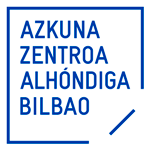
Ourense, 1990. She studied Fine Arts at the Faculty of Pontevedra with exchanges with the University of Porto (Portugal) and Guadalajara, Jalisco (Mexico), and has a master’s degree in Art Direction.
Her work has been selected in art competitions such as the Premio Auditorio de Galicia in Santiago, or Mostra Gas Natural Fenosa, Novos Valores and she has received awards in the Plastic Arts Contest of Isaac Díaz Pardo, the Ourense District Council as well as the paint contest of the University of Vigo.
She has participated in collective exhibits since 2013 in diverse exhibitions in Galicia, in the Kvit Gallery of Copenhagen or Centro Centro in Madrid
Share:
Nescis, ploras, agis, cav(e)bis
(You don’t know, you cry, you move, you will be careful)
I work abstraction in the field of paint and drawing using diverse techniques and means, always trying to understand it as a language. My pieces are defined by being developed between processes and with specific material, and both factors end up having influence over the identity of the piece. My interests lay in diving deeper into what the basic characteristics of each discipline are, to reflect on their aesthetic and cognitive properties, in their own essence and possibilities.
Thus, the focal points of my concerns are the enunciative capacity of the abstract form and the minimum units of narrative and material to question the procedures and possibilities of paint in a contemporary context. Ultimately, paint and language.
With that perspective of work in mind, I come to Rome, with the intention of making a plastic essay oriented towards a relationship between paint and poetry. It ends up leading to a body of work that arises from the observation and analysis of classic paint, trying to detect basic elements out of contemporary logic (objectuality, representation…).
The title, extracted from the Tabula Lusoria, a game situated in the Caracalla springs, is a nod towards different aspects of the creative process especially present in my evolution here, such as intuition, dérive, or decision.
The development of an artistic Project is always somewhat complex, between previous objectives and specific necessities there is a lingering tension that appeals to responsibility. In the case of being in the Academy, and even more so in Rome, that sensation of responsibility increases. On one side it’s the confidence that such a consecrated institution deposits in one, and on the other, it’s the indisputable flow of information that Rome contributes through its historical burden and status of excess and eternalness. What can one do in their studio after having visited the Caravaggios of San Luigi? I would say, at least in my case, that the most adequate response would be, and was, to begin a permeable silence.
Among all this mayhem of beauty and recontextualization I decided that the most appropriate thing to do would be to visit museums and do the legwork in the workshop with tests and lectures. And so were the first months. Little by little I was able to establish a fence around the conceptual focal interest and my own artistic practice. After a time, guided by intuition, language and paint were more present than ever in the hypothesis put forward by the completed work. Colour, representation, composition, objectuality, allegory or materiality were some of the elements with which I began giving the sense of the pieces direction, coming from a sensitive intention. They are formal decisions, and despite being autonomous with respect to verbal language, have consequences. After all, the aesthetic character of a work is (at least) part of the proposed cognitive goal.
The process of dérive and reflection that the stay at the Academy gave me was so important that I decided to orient the title towards it.
Despite my initial intents, to isolate professional and personal life at the Academy is difficult and one of the pillars of the experience is just that. The time spent as a resident, in a privileged place, the interdisciplinary aspect of the scholarships and the heterogeneity of the ages are aspects that condition the creation process. Throughout my stay I have had time to doubt, to err and to get things right and all of that has meant maturing in the process as well as a way of facing my vocation.
